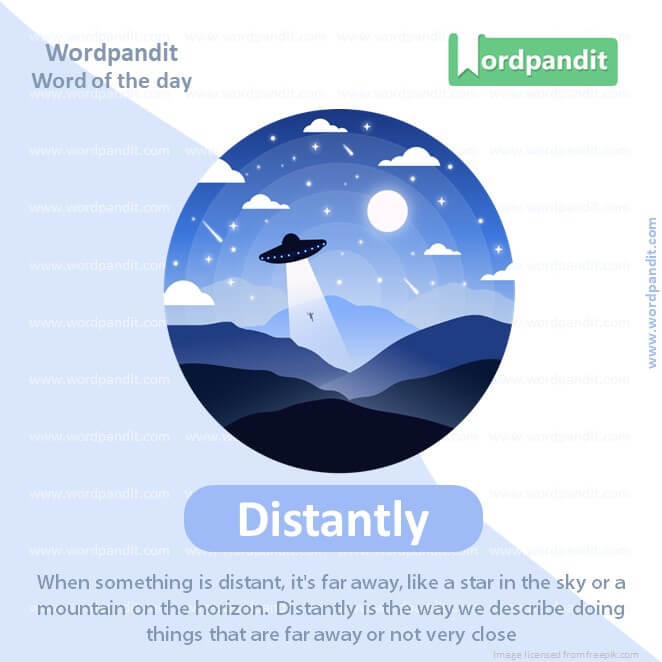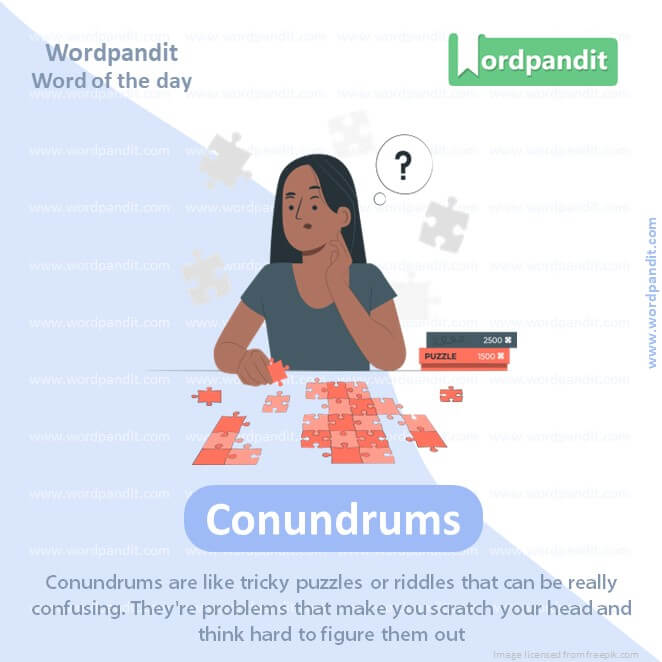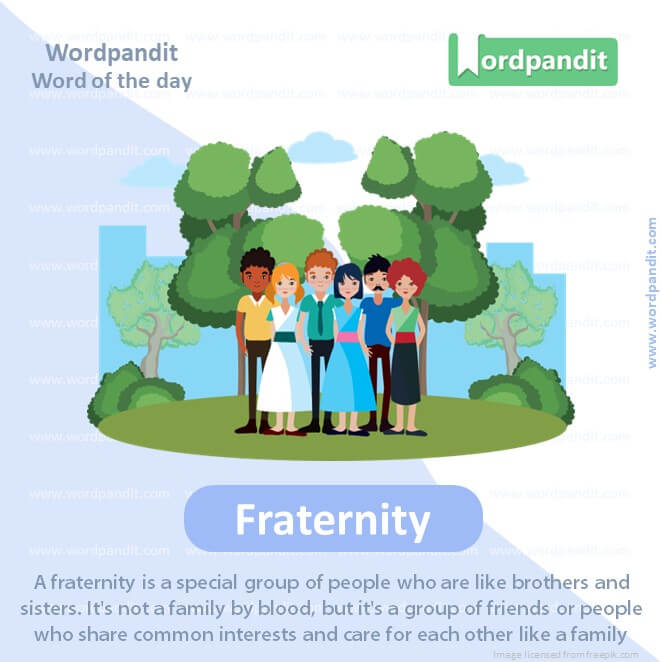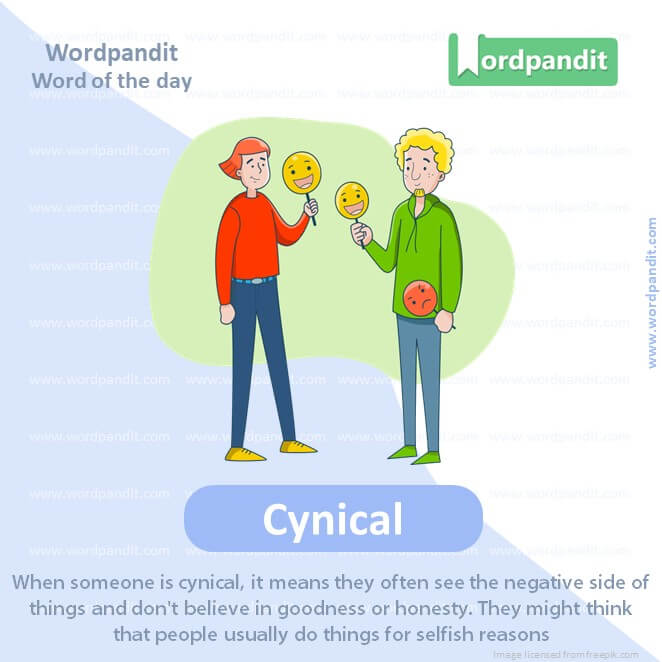Daily Vocabulary Words: List of Daily Used Words in Leading Indian Newspapers
Hi there. Welcome to this special section @ Wordpandit. Our endeavour here is straightforward: highlighting daily vocabulary words that you would come across in leading newspapers in the country. We have included the following newspapers in our selection:
• The Times of India
• The Economic Times
• Hindustan Times
• Mint
• Indian Express
We are putting in extensive work to develop your vocabulary. All you have to do is be regular with this section and check out this post daily. This is your repository of commonly used words; essentially, we are posting a list of daily used words. Hence, this has significant practical application as it teaches you words that are commonly used in leading publications mentioned above.
Visit the website daily to learn words from leading Indian newspapers.

WORD-1: Amenities
CONTEXT: But when it comes to daily events such as provision of civic amenities, the result is deeply unsatisfactory.
SOURCE: Times of India
EXPLANATORY PARAGRAPH: Amenities are like little extras that make a place nice and comfortable. They can be things like a playground in a park, a pool at a hotel, or even toys in a playroom. Amenities are all the special things that make a place fun and enjoyable to be in. (Noun)
MEANING: Little extras that make a place nice and comfortable (Noun).
PRONUNCIATION: Uh-men-i-tees
SYNONYMS: Luxuries, comforts, extras, facilities, perks, conveniences, features
USAGE EXAMPLE:
1. The hotel had many amenities, like a swimming pool and a game room, to make our stay enjoyable.
2. The park’s amenities, including swings and slides, made it a great place for kids to play.
3. The amenities in the apartment complex include a gym, a lounge, and a beautiful garden.
4. They chose the house because of the amenities nearby, like the shopping center and the movie theater.

WORD-2: Distantly
CONTEXT: In India, local governments distantly trail states and GOI in bureaucratic strength.
SOURCE: Times of India
EXPLANATORY PARAGRAPH: When something is distant, it’s far away, like a star in the sky or a mountain on the horizon. Distantly is the way we describe doing things that are far away or not very close. (Adverb)
MEANING: Far away or not very close (Adverb).
PRONUNCIATION: Dis-tuhnt-lee
SYNONYMS: Far, faraway, remotely, separately, apart, not closely
USAGE EXAMPLE:
1. The moon is very distant from the Earth, so astronauts have to travel a long way to reach it.
2. The sound of the music from the party could be heard only distantly from our house.
3. The mountains looked beautiful but were too distant to visit on this trip.
4. He waved at the ship in the distant sea, hoping they would see him.

WORD-3: Conundrums
CONTEXT: Be it IFS that grapples with FTAs or other services that must contend with complex policy conundrums, bureaucracy needs more recruitment and more domain expertise.
SOURCE: Times of India
EXPLANATORY PARAGRAPH: Conundrums are like tricky puzzles or riddles that can be really confusing. They’re problems that make you scratch your head and think hard to figure them out. (Noun)
MEANING: Tricky puzzles or riddles that can be confusing (Noun).
PRONUNCIATION: Kuh-nuhn-druhms
SYNONYMS: Puzzles, enigmas, mysteries, riddles, challenges, brain-teasers
USAGE EXAMPLE:
1. The conundrum of the missing piece in the jigsaw puzzle stumped us for hours.
2. Solving math conundrums can be a fun and challenging activity.
3. The mystery novel was full of conundrums that kept the readers guessing.
4. Figuring out how to escape from the escape room was a real conundrum for the group.

WORD-4: Fraternity
CONTEXT: Separately, it is also widespread across the medical fraternity, on whom women are even more dependent for abortion than courts.
SOURCE: Times of India
EXPLANATORY PARAGRAPH: A fraternity is a special group of people who are like brothers and sisters. It’s not a family by blood, but it’s a group of friends or people who share common interests and care for each other like a family. (Noun)
MEANING: A special group of people who are like brothers and sisters (Noun).
PRONUNCIATION: Fra-ter-ni-tee
SYNONYMS: Brotherhood, fellowship, sorority (for women), comradeship, camaraderie, kinship
USAGE EXAMPLE:
1. He joined a fraternity in college, and he made lifelong friends who felt like brothers.
2. The members of the fraternity always supported each other through thick and thin.
3. The sorority was like a sisterhood, where the girls shared a strong bond of friendship.
4. The fraternity organized charity events to help those in need.

WORD-5: Cynical
CONTEXT: It’s hardly time to end reservation but expanding it — the Bihar caste survey is a cynical attempt to do so — is unfair to future generations and divisive.
SOURCE: Indian Express
EXPLANATORY PARAGRAPH: When someone is cynical, it means they often see the negative side of things and don’t believe in goodness or honesty. They might think that people usually do things for selfish reasons. (Adjective)
MEANING: Seeing the negative side of things and not believing in goodness or honesty (Adjective).
PRONUNCIATION: Sin-i-kuhl
SYNONYMS: Skeptical, distrustful, pessimistic, doubtful, mistrustful, suspicious, negative
USAGE EXAMPLE:
1. Her cynical attitude made it hard for her to trust others easily.
2. He had a cynical view of politicians, believing they only cared about themselves.
3. Don’t be so cynical; sometimes people do kind things just because they want to help.
4. His cynical remarks about the movie made everyone feel less excited to watch it.
WORD-6: Radically
CONTEXT: Radically rebooting India’s infrastructure of opportunity, employment, employability and education offers a powerful policy alternative to reservation without dividing society.
SOURCE: Indian Express
EXPLANATORY PARAGRAPH: Radically means when something changes a lot and very quickly, like a big and sudden transformation. It’s like when a caterpillar turns into a butterfly, and everything about it is different. (Adverb)
MEANING: Changing a lot and very quickly (Adverb).
PRONUNCIATION: Rad-i-klee
SYNONYMS: Completely, drastically, thoroughly, dramatically, utterly, entirely, fully
USAGE EXAMPLE:
1. The invention of smartphones has radically changed the way we communicate and live our lives.
2. After the earthquake, the landscape of the city had radically transformed.
3. She decided to change her hairstyle radically, going from long hair to a very short haircut.
4. The new government policies will radically affect how businesses operate in the country.
WORD-7: Biased
CONTEXT: That means equal treatment, unbiased competition and impartially judged outcomes, not equal outcomes achieved by unequal treatment, biased competition and preferential judging.
SOURCE: Indian Express
EXPLANATORY PARAGRAPH: When someone is biased, it means they have a preference for one thing or one side, and they don’t treat everything fairly. It’s like having a favorite color and always saying it’s the best, even if it’s not. (Adjective)
MEANING: Having a preference for one thing or one side and not treating everything fairly (Adjective).
PRONUNCIATION: By-uhst
SYNONYMS: Prejudiced, partial, unfair, one-sided, discriminatory, biased, favoring
USAGE EXAMPLE:
1. The judge had to step down from the case because he was biased and had a personal connection to one of the parties.
2. Her biased opinions made it hard to have a fair discussion about the topic.
3. The teacher was careful not to be biased when grading the students’ papers.
4. It’s important to make decisions based on facts and not be biased by personal preferences.
WORD-8: Covenant
CONTEXT: This, in turn, does not give us any straightforward story of one group having clear rights to ownership of land by virtue of a covenant between its ancestors and god.
SOURCE: Indian Express
EXPLANATORY PARAGRAPH: A covenant is like a special promise or agreement between people. It’s a bit like a pinky swear, where you make a solemn and important commitment to do something or behave in a certain way. (Noun)
MEANING: A solemn and important promise or agreement (Noun).
PRONUNCIATION: Kuh-ven-uhnt
SYNONYMS: Agreement, pact, promise, contract, commitment, bond, pledge
USAGE EXAMPLE:
1. When they got married, they made a covenant to love and support each other for the rest of their lives.
2. The treaty was a covenant between the two countries to work together for peace.
3. Signing the lease is a covenant to follow the rules of the apartment building.
4. In some religions, a covenant is made between a person and their god, signifying a deep spiritual commitment.
WORD-9: Irrefutable
CONTEXT: Though historians have struggled to find irrefutable evidence of a Promised Land, politicians and British colonialists did not have any such difficulty.
SOURCE: Indian Express
EXPLANATORY PARAGRAPH: Something that is irrefutable is so true and obvious that it cannot be argued against or denied. It’s like saying the sky is blue; it’s a fact that can’t be questioned. (Adjective)
MEANING: Undeniable and cannot be argued against (Adjective).
PRONUNCIATION: Ir-i-fyoo-tuh-buhl
SYNONYMS: Undeniable, incontrovertible, indisputable, inarguable, unquestionable, absolute, certain
USAGE EXAMPLE:
1. The evidence presented in court was irrefutable, proving the defendant’s guilt beyond doubt.
2. The scientist’s discovery was considered irrefutable by experts in the field.
3. Her talent for singing was irrefutable; everyone could hear how amazing she was.
4. The truth of the matter was irrefutable, and there was no room for debate.
WORD-10: Demon
CONTEXT: “When you tell a lie, a demon with red eyes and a horn on his head will drag you from your bed in the middle of the night and punish you badly. Then, I am sure you will never lie,” she continued.
SOURCE: Times of India
EXPLANATORY PARAGRAPH: A demon is a make-believe creature often seen in stories or movies. They’re usually shown as scary, evil beings with horns and a wicked smile. Demons are like the villains in fairy tales, and they do bad things. (Noun)
MEANING: A make-believe creature often portrayed as scary and evil (Noun).
PRONUNCIATION: Dee-muhn
SYNONYMS: Devil, fiend, evil spirit, malevolent being, monster, bogeyman, brute
USAGE EXAMPLE:
1. In the Halloween costume, he dressed up as a demon with red face paint and scary horns.
2. The hero in the story had to battle a powerful demon to save the kingdom.
3. The old castle was said to be haunted by the ghosts of demons from long ago.
4. Don’t worry, demons aren’t real; they’re just characters in stories meant to give you a little scare.
Vocabulary In English
Dancing within the vibrant scheme of language learning, a profound understanding of ‘vocabulary in English’ is indispensable. These sets of words, serving as the pillars of communication, lay the foundation for effective and fluent exchange of ideas. Yet the question begs, how should one go about mastering ‘vocabulary in English’?
Embracing ‘vocabulary in English’ demands a well-rounded understanding, far more than mere surface memorization. It is of immense benefit to explore a variety of reading materials, such as books, newspapers, magazines, and online content. This broad exposure yields a practical understanding of how and when words are used, thereby enriching your command over ‘vocabulary in English’.
To aid the learning of ‘vocabulary in English’, memory-enhancement techniques come to the rescue. Regularly using flashcards, or applications that reinforce the principles of spaced repetition, can drastically improve memory retention. Aiding this, the use of mnemonic devices to associate words with unique stories or images in your mind has shown to greatly assist recall.
Practical application further paves the way for mastering ‘vocabulary in English’. By using the learnt words actively in your daily conversations, you cement their grasp in memory and understand their practical usage.
Rounding off, regular reviews of ‘vocabulary in English’ is the secret ingredient in the recipe for success. Consistent revision sessions solidify the retention of previously learned words and maintain a fresh connection with them.
To conclude, the path to mastering ‘vocabulary in English’ is an insightful journey, made enjoyable with diverse resources, effective memory techniques, practical usage, and regular review sessions. As you immerse into this linguistic voyage, every word you learn brews a unique tale, enhancing the narrative of your language proficiency and guiding you towards becoming a skilled communicator.







